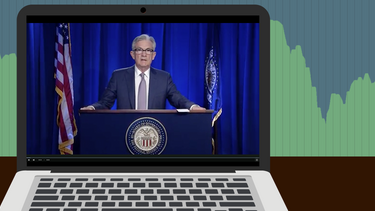Finance
The Corporation Is Centuries Older than We Thought
The genesis of the joint-stock company is usually traced to the founding of the English East India Company and the Dutch East India Company around 1600. New research co-authored by Prof. William Goetzmann says this origin story may be off by centuries.

Does A Mutual Fund’s Past Performance Predict Its Future?
A classic 1997 paper on mutual fund performance doesn’t describe present-day markets, Yale SOM's James Choi found.

How You Can Invest in Racial Justice
Yale SOM’s Teresa Chahine and a panel of experts discussed how businesses, financial firms, and regular investors can make choices that empower local businesses and increase opportunity.

Liquidity Injections May Have Driven the Stock Market Recovery
Why did the stock market recover as the economy suffered? Yale SOM’s Shyam Sunder points to the hundreds of billions of dollars injected into the economy by the Federal Reserve and other central banks.

Why Did the Stock Market Bounce Back While COVID-19 Cases Kept Rising?
According to preliminary research by Yale SOM’s Peter Schott and his co-authors, investors may be adjusting prices based on whether previous predictions of total infections seemed overly optimistic or pessimistic.

Investing in Vietnam’s Future
Venture capitalist Eddie Thai ’12 says that the pandemic is doing economic damage to Vietnam’s globalization-driven tech sector, even as some companies in his portfolio see their valuations grow.

Crashes and COVID-19 in Historical Context
The stock markets are reeling as fear and uncertainty about the global pandemic grow. We asked Yale SOM’s William Goetzmann, whose research includes financial history, to put the volatility into historical perspective.

What the Plunge in the Stock Market Means for Individual Investors
We asked Yale SOM’s James Choi, who has examined the implications of academic research for personal finance, what studies say about how to respond to a market crash.

Study Finds Declaring Bankruptcy May Not Hurt Future Employment Prospects
Hundreds of thousands of Americans declared bankruptcy during the Great Recession. A new study co-authored by Yale SOM’s Paul Goldsmith-Pinkham examines the effect on their employment prospects.

Single Women Get Lower Returns from Housing Investments
A new study from Yale SOM’s Kelly Shue and Paul Goldsmith-Pinkham finds that single women who buy and sell real estate lose out on an average of $1,600 per year.

Should We Worry about the Trillion-Dollar Deficit?
We asked William English, a professor in the practice of finance and a former economist at the Federal Reserve, how the deficit and the ballooning national debt affect the economy and the ability of Congress and the Fed to fight future recessions.
